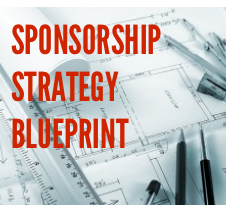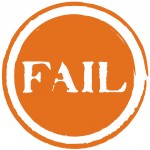 One of my favorite sales gurus is Scott Messer of Sales Evolution. Not only is Scott a good friend, he is a sales expert and master sales coach.
One of my favorite sales gurus is Scott Messer of Sales Evolution. Not only is Scott a good friend, he is a sales expert and master sales coach.
This post will help you solve Your Biggest, Nastiest, Stupidest, Most Expensive Sales Mistake... and give you several of Scott's brilliant sound bites to help you improve your sales success.
We're talking about a BIG sales mistake you probably made last week, will make again this week, and -- unless you heed Scott's wisdom -- will make next week again.
All of which will cost you THOUSANDS if not TENS of thousands of dollars in lost sales.
Scary, right?
What is this big, nasty, pervasive, expensive sales mistake?
Here it is: Not being a fanatic about collecting decisions from prospects.
Scott says selling is 100% about collecting decisions.
It's not about getting yeses, it's not about closing gimmicks. It's simply about being tenacious about taking prospects down a path (aka your sales process) to help them make a clear and definitive DECISION. As in "Yes" or "No."
Not "Let me think about it" - not "I'll get back to you" - not "circle back with me next week" - not anything other than a firm date and time on the prospect's calendar for you to hear "YES" or "NO."
How do you do this? Simple - Scott recommends that at every step of the sales process, put a date and time on the calendar for a "decision call." Here's how to ask:
- Let's put a date and time on the calendar for us to discuss your decision
- Let's put a pushpin in the calendar for us to reconnect about your decision
- Because you and I are both so busy, let's put a date and time on the calendar so you can tell me "Yes" or "No" or to answer any final questions you may have for me
Scott recommends that you forget about your sales pipeline - forget about your number of first appointments, forget about your number of "hot leads" - there is ONE and ONLY ONE measure of how healthy your sales pipeline truly is.
That measure is - how many decision calls are on your calendar? A decision call, by the way, needs to be not only on YOUR calendar - it needs to be on your PROSPECT'S calendar because it is their responsibility to make one AND communicate it to you on that call.
Example: I had a prospect call me two weeks ago. Let's call him Paul (which is cool because his name is really... Paul.)
All was going well. Then I got a little derailed when he asked for references. Ordinarily, I would set a decision call by asking him, "When will you make time to call my reference folks? Let's make a time to discuss your decision after that."
But I goofed. I was in a hurry. I let Paul wander off with no decision date on the calendar. When I called him this morning to circle back, he told me that he had gotten "distracted" and had not called the references at all. He then said, "I'll get back to you within three weeks."
I laughed.
Instinctively, I said, "You'll get back to me in three weeks because you're the kind of guy who likes to take lots and lots of time to make a decision and have people like me chasing you endlessly and leaving message after message and email after email when the real answer is no."
Yup, I said that.
Out loud.
Right to Paul's face.
Why? Because to quote another Scott Messer sound bite - "You can't blow up a good prospect."
Paul laughed and admitted that he did NOT, in fact, enjoy being chased endlessly.
So I put Paul out of his misery and fired him as a prospect. Here's how that sounded:
"Paul, I'll put you down as a "No" for now. If you'd like to revisit working together, you know where to find me."
He was perfectly cool with that. So I knew the deal was dead.
I've used that "No for now" line in the past and GOOD prospects will jump in with "No, no, no I definitely want to work with you. I just need more time to..." and they put themselves back into the active prospect column.
What do I do then? You guessed it - we set a decision call on the calendar.
Anyway, back to Paul... I wanted to put a nail in the coffin so I sent the following email after we hung up the phone:
===
Paul,
Because you are no longer an active prospect, please do NOT call the folks I sent as references.
As I'm sure you can appreciate, references are precious and I do not want to burn out my reference folks by speaking with less than 100% committed prospects. (I probably should not have given you references this early in the process anyway. My mistake.)
Best of luck on your adventures and thank you in advance for respecting my wishes.
-- David
===
So the lesson is - be relentless with setting your decision calls. There is no other single determining factor that's more important to your sales success.
Trust me - I make more money when I relentlessly implement Scott's "decision call" philosophy. And I make less money when I don't!
Tags: sales prospecting mistakes, big nasty dumb stupid expensive sales mistake, doit marketing, marketing speaker, marketing coach
WHAT DO YOU THINK? Use the COMMENTS area below to leave your advice, insights and recommendations on these ideas to boost your sales success...




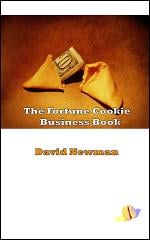

 Forget about your cheap company pens...
Forget about your cheap company pens... 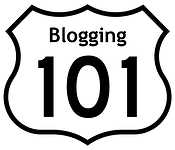
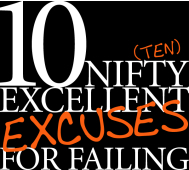 As a marketing speaker and marketing coach, it makes me mad - like
As a marketing speaker and marketing coach, it makes me mad - like  Let’s talk about YOUR product development strategy. This is about creating products with intention. And let me back up a step and define what I consider “creating a product” to be.
Let’s talk about YOUR product development strategy. This is about creating products with intention. And let me back up a step and define what I consider “creating a product” to be. Marketing Coach: 6-Step Secret Sauce for Awesome Email Subject Lines
Marketing Coach: 6-Step Secret Sauce for Awesome Email Subject Lines If you are looking to write a book, produce audio, video, or online assets, package a coaching or consulting program, or otherwise "productize" your expertise, keep reading... you'll like this post.
If you are looking to write a book, produce audio, video, or online assets, package a coaching or consulting program, or otherwise "productize" your expertise, keep reading... you'll like this post. 